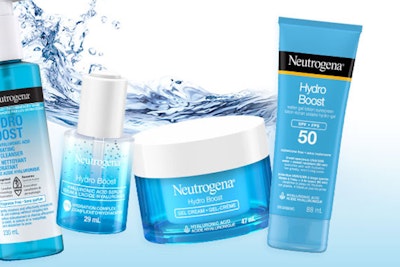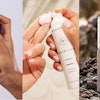Neutrogena
Solutions-focused skincare, founded in 1954

Neutrogena's Sustainability Rating
Insufficient
Ingredients
Neutrogena doesn't make any ingredient commitments at the brand-level. Its parent company, Kenvue Inc., makes commitments across all owned brands to increase use of RSPO-certified palm oil but it's unclear what it's baseline is. Neutrogena still uses many ingredients that pose a significant threat to the climate, including phthalates, microplastics, harmful sun care ingredients, other petrochemical-based ingredients, and palm oil. Choice of ingredients is a strong determinant of environmental impact and we expect more accountability from large companies. Neutrogena doesn't report having any product or company-level certifications.
Containers & Packaging
Neutrogena doesn't share anything about its packaging materials at a brand level. Its parent company, Kenvue Inc., has made efforts to minimize the amount of virgin plastic in its packaging and has a goal of 100% recyclable or refillable packaging by 2025, though it's not fully on track. It reports having 94% certified or verified paper packaging materials as of 2023. Neutrogena offers a couple products in concentrated formats, which can help avert waste and lower shipping emissions.
Energy & Water Use
Neutrogena's parent company, Kenvue Inc., shares information on its overall energy strategy. It uses a majority of renewable energy to power its operations, though it doesn't share how this is distributed across its production sites and corporate offices. Kenvue Inc. has targets for expanding its use of renewable energy and also implements general energy efficiency measures in its production sites and corporate offices. It appears to have only baseline water conservation measures, and determined that water wasn't a material topic for its business. Neutrogena has a global production span, which is standard for the industry.
Refill & Reuse
Neutrogena utilizes alternative models for some products to avert waste, including offering lower-waste refills. It doesn't offer any take back programs for its product containers.
Slow Cleaning
Neutrogena offers seasonal products or frequent releases, which can encourage overconsumption and production of excess inventory.
Marketing
Commons is still evaluating this brand's marketing emails.
Transparency & Reporting
Neutrogena doesn't appear to have a sustainability page or centralized source of relevant information. It also doesn't link customers to its parent company's comprehensive site. We expect more transparency from brands this large. Its parent company, Kenvue Inc., publishes a detailed annual report with a clear, impact-driven strategy and progress reporting. Its last annual report was published in 2023. Neutrogena shares a complete list of ingredients used in its products on a per product basis. Its ingredients glossary page is misleading as it only lists some of the overall ingredients used.
Emissions Tracking
Neutrogena's parent company, Kenvue Inc., internally measures and publicly reports its company-level emissions in partnership with, or with auditing from, a third party. It includes a breakdown by scope and identifies its top driver of emissions. The last reporting period was 2023. In its most recent update, its estimated emissions footprint was 3,989,842 tons CO2e.
Targets & Offsets
Aveeno's parent company, Kenvue Inc., has SBTi-approved emissions reduction targets for the medium-term (5-10 years). It has reported on its progress within the past year, and is on track for its Scope 1+2 targets, but it hasn't yet set it net-zero target. Commons couldn't find evidence that this brand offsets any emissions.
Supply Chain & Labor
Neutrogena doesn't publish information about its supply chain partners. It publicly shares a supplier code of conduct, which prohibits forced labor, prohibits child labor, includes environmental clauses, and appears to ensure the right to collective bargaining. Its code of conduct doesn't disallow unauthorized subcontracting, ensure a living wage, or establish grievance mechanisms. Neutrogena doesn't have a stated policy of regularly auditing its supply chain partners. This may increase human and environmental risks.
Advocacy
Neutrogena's parent company, Kenvue Inc., doesn't openly disclose its climate-obstructive trade association memberships. It's a member of 3 large climate-obstructive trade associations: U.S. Chamber of Commerce, Business Roundtable, and National Association of Manufacturers. Kenvue Inc. isn't a member of advocacy organizations advancing climate policy. It doesn't employ any state lobbyists and didn't donate more than $100k to climate-obstructive candidates or PACs from 2018-2024.
Neutrogena has a Insufficient rating for its personal care products due to an overall lack of sustainability efforts and disclosures. We expect more reporting and transparency from a brand of its size.
Neutrogena doesn't make any brand-level commitments related to its ingredients, and its parent company makes only limited commitments across all owned brands. Choice of ingredients is a strong determinant of environmental impact and Neutrogena still uses many ingredients that pose a significant threat to the climate, including phthalates, microplastics, harmful sun care ingredients, other petrochemical-based ingredients, and palm oil.
It offers a few lower-waste refill options, but doesn't share anything about its packaging materials on a brand-level and appears to use primarily virgin plastic. Its parent company is working on increasing recycled content in its plastic, but it's unclear what progress it's made. Its parent company reports using a majority of renewable energy in its operations, shares its emissions data, and has SBTi-approved reduction targets.
We haven't yet evaluated Neutrogena's beauty products. Neutrogena is owned by Kenvue Inc.
Our ratings are based on a scale from 1 (bad) to 5 (best). How we rate →
https://www.kenvue.com/hlm-report-2023
https://www.kenvue.com/our-commitments/maintain-healthy-practice
https://www.kenvue.com/task-force-on-climate-related-financial-disclosures-2023-report
https://www.neutrogena.com/the-bar/skincare-glossary
https://sciencebasedtargets.org/target-dashboard
https://www.kenvue.com/policies-positions/supplier-code-of-conduct
https://www.kenvue.com/policies-positions/trade-association-positions-on-public-policy
https://fminus.org/lobbyists/
https://www.fec.gov/data/browse-data/
Get Rewards
Earn for sustainable purchases
Commons rewards you for sustainable purchases from all our Top Rated brands, plus thousands of everyday purchases — from thrift stores to public transit.
Learn more about rewards ->







